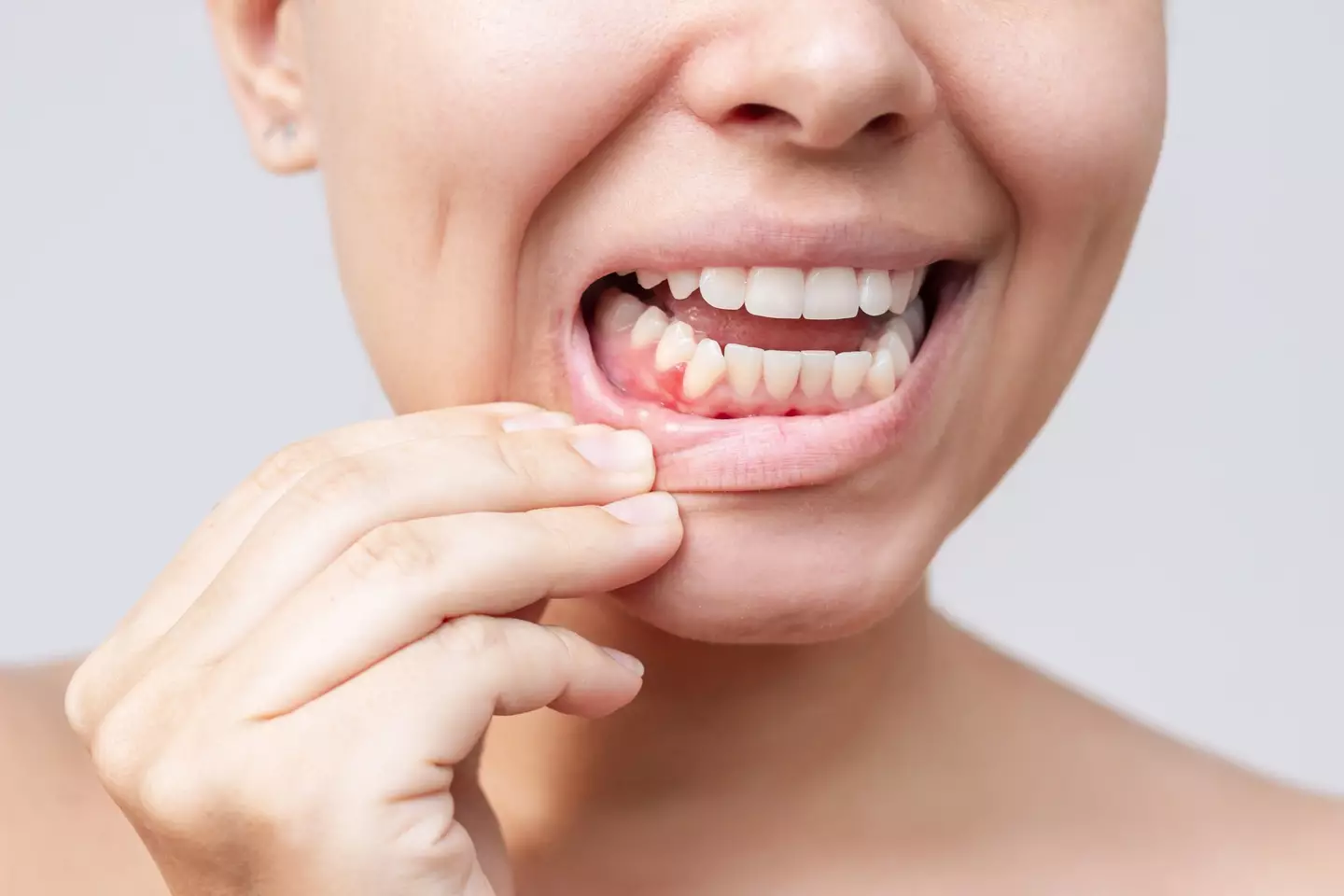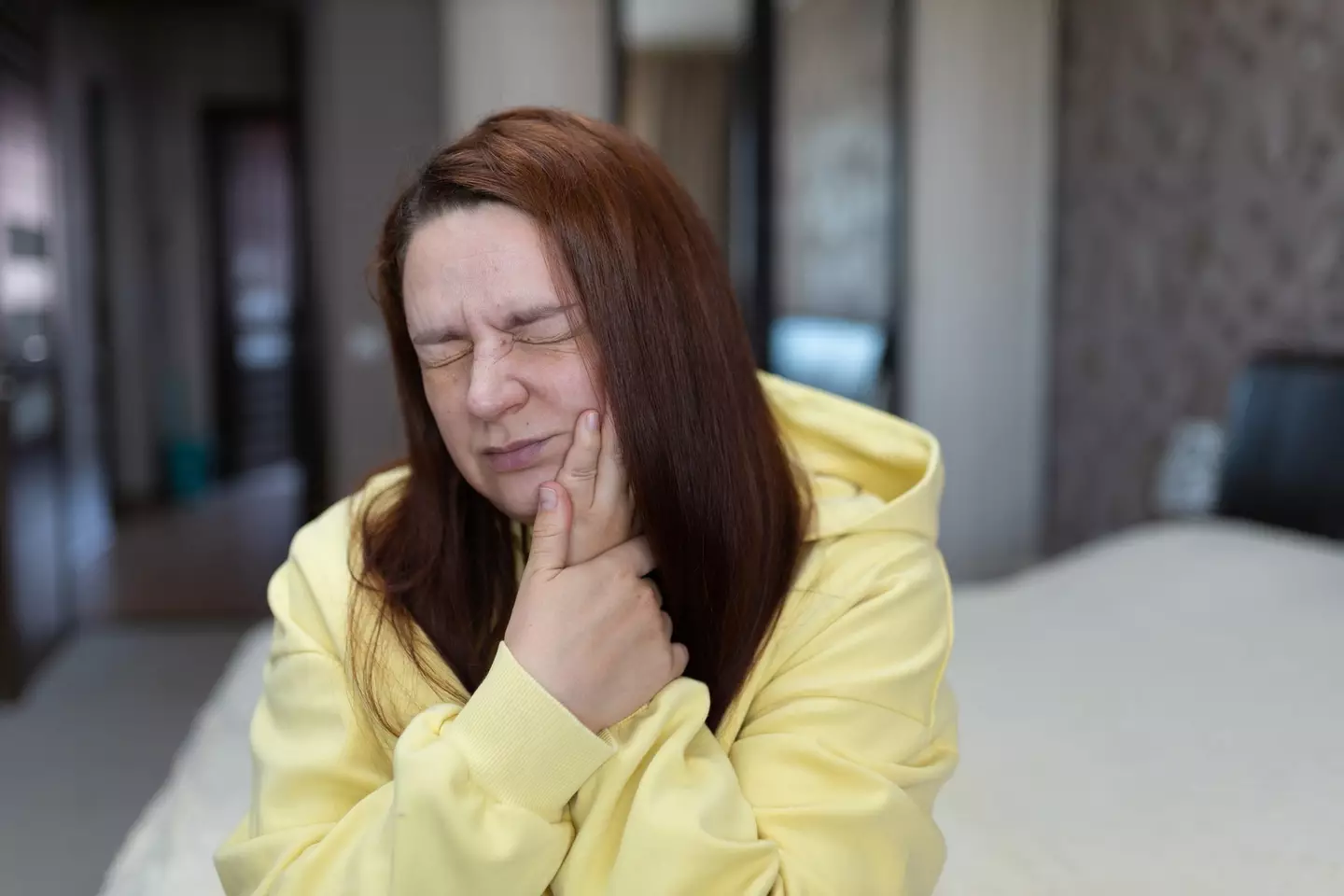You get two sets of them, and that’s it. For some of us, the travails of baby teeth are a good education in why you need to look after your gnashers.
Fillings aren’t particularly aesthetic, nor is it nice to have them put in, and anyone who’s been unlucky enough to break a tooth will know that’s no picnic either.
Luckily we do get two cracks of the whip where teeth are concerned, and once your adult teeth have come through you’ll likely know the importance of keeping them in good condition.
That said, our teeth are under near-constant assault by just about everything we eat and drink, and it’s a particular problem with ultra-processed foods, anything high in sugar or natural acids, and alcohol.
Advert

The latter is more commonly cited as a big risk to our livers, digestive systems, hearts and brains, but it’s also bad news for our teeth.
With that in mind, here are 11 dentist-approved ways your mouth can tell you to cut back on the booze.
1. Gums bleeding after brushing your teeth
After brushing your teeth, your gums might be inflamed, swollen, and bleeding. This can be a sign that alcohol has irritated and softened them up, as well as a warning sign of gum disease.
2. Gums bleeding whilst eating food
Hard foods like apples can be too much for diseased gums to bear. If your gums bleed whilst chomping through food, it’s a good idea to get them checked out.
3. Gums look red and swollen
If your gums are looking more red than pink, along with being swollen and tender, then you may have a plaque build-up that needs a visit to the hygienist. Alcohol can exacerbate these symptoms.
4. Gums feel sore
If your gums feel a bit battered and bruised, you may be brushing too hard. Alcohol can, again, lower your gums’ threshold for feeling worn out. As with the other symptoms listed so far, this can also be a sign of gum disease.
5. You can’t get rid of bad breath
If you have consistently bad breath that doesn’t improve with brushing your teeth, flossing, and using mouthwash, you may have a condition called halitosis. This can be a symptom of gum disease, but it’s also good cause to visit a hygienist for a professional clean.
6. Pus or evidence of pus around your teeth
Pus is about the last thing you want to find in your mouth, and if you find any in there then it could be a sign that you’ve got a dental abscess. An abscess is essentially an ulcer that’s developed into a reservoir of bacteria-rich pus, and having one in your mouth is very painful along with increasing your risk of gum disease and tooth decay.
7. Your gums appear to be receding
If your gums look like they’re drawing back from your teeth – your teeth may look larger or longer than usual – then this can be another sign of gum disease.
8. Your teeth feel loose
As gum disease progresses, your teeth can become less stable and start to feel loose. This is because the disease damages the soft tissues in your mouth, weakening the tissues anchoring your teeth in your jaw.
9. Gaps are opening between your teeth
Once gym disease is quite advanced, your teeth may start opening gaps between each other.
10. Your teeth appear to move
If your teeth feel or look like they’re moving, it’s a sign you may have gum disease. People who grind their teeth, especially in their sleep, may make this worse.

11. You’re getting regular sores in your mouth
Mouth ulcers, sores on your tongue, and peeling skin inside your mouth can also be a warning sign of gum disease. These all tend to come from poor oral hygiene, with gum disease increasing the number of nasty bacteria in your mouth and making sores more likely.
While all of these symptoms can appear among the teetotal, alcohol’s irritating effect on the gums and its ability to suppress your immune system can heighten the chances of developing them.
If you’re experiencing any of the above, be sure to book an appointment with your dentist.

